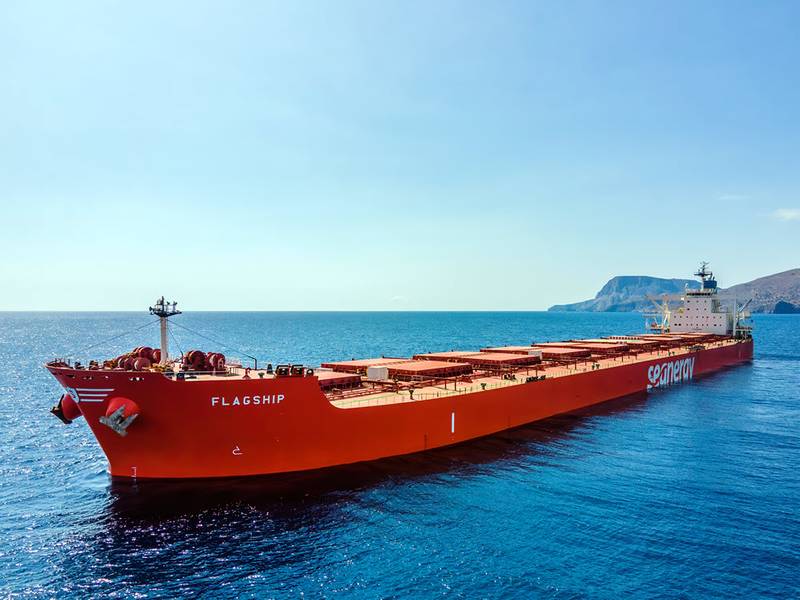Tariffs Risk Working Against the Imposer’s Interests
Feb 4, 2025

Source: Seanergy Maritime
“When a country that exports large quantities imposes tariffs, it risks working against its own interests,” says Stamatis Tsantanis, Chairman & CEO of Greek shipping companies Seanergy Maritime and Maritime United.
“Other nations adjust by sourcing commodities elsewhere. For example, the first time President Trump imposed tariffs on various goods, China responded by rerouting its imports of maize, corn, and grains to countries like Brazil and other parts of Latin America,” he says.
“From a trade perspective, this pattern remains consistent. It doesn’t change the global supply but shifts the flow of goods. However, for consumers, tariffs typically lead to inflationary pressures, increasing overall costs.”
The U.S. is one of the world’s largest exporters of commodities, excluding oil and natural gas, shipping nearly 400 million tons of goods like grains, maize and coal.
For grains and other agricultural commodities like corn and maize, tariffs are unlikely to have a significant impact, says Tsantanis. “On the contrary, if conflicts subside and key trade routes, such as the grain corridor from Ukraine via the Baltic and Black Seas, reopen, we expect a major boost in grain exports.”
Ultimately, tariffs are just one factor, he says. Geopolitical events play an equally important role. “The next six months will be critical as the current administration aims to end conflicts while implementing new trade policies. The outcome of these efforts, and how tariffs interact with global events, remains uncertain. Significant volatility is expected over the next three to six months as the market adjusts to the evolving landscape, making this a pivotal period for global trade and economic stability.
“The biggest risk, as President Trump recently pointed out, is the ongoing war between Ukraine and Russia, which could easily escalate. We have reached a critical juncture—a potential "make or break" moment. I am genuinely concerned that the conflict could spiral beyond control, making it unmanageable. Mistakes can happen, particularly in Europe, which is at the doorstep of this crisis.
“If the situation worsens, the consequences could be severe, taking years to recover from. While the conflict is already deeply affecting the region, Europe is particularly vulnerable, given its proximity. Many neighboring countries could feel the direct impact, and I can only hope that the situation stabilizes before it disrupts the global order. I remain optimistic, but in my view, the greatest risk is a widespread escalation.”

Bulk Carriers
Trade
Cargo
Sanctions